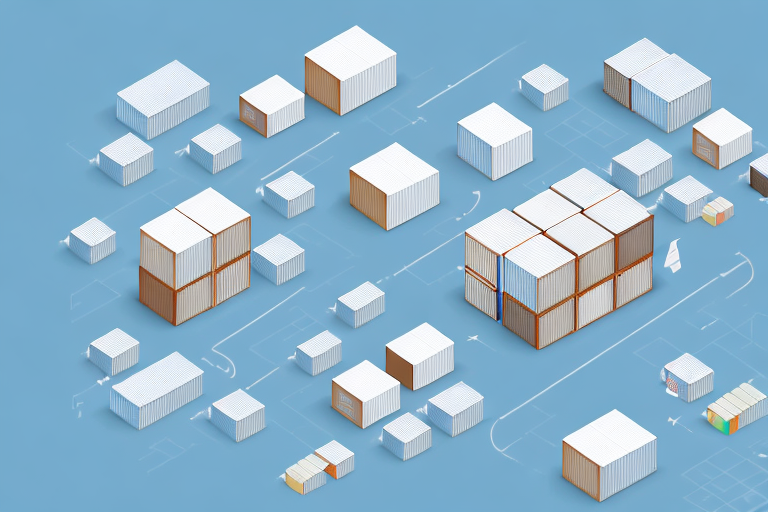Understanding the Benefits of a Bonded Warehouse in Your Supply Chain
If you run a business that involves importing or exporting goods, you may want to consider using a bonded warehouse in your supply chain. A bonded warehouse is a secure facility that allows businesses to store goods that have not yet gone through customs clearance. This can provide numerous benefits for businesses of all sizes, helping to simplify logistics, reduce costs, and expand your global reach. In this article, we’ll take an in-depth look at the benefits of bonded warehousing, how it works, and what you need to know to implement a successful strategy for your business.
What is a Bonded Warehouse and How Does it Work?
A bonded warehouse is a secure storage facility authorized by customs authorities to store goods that are in transit or have not yet gone through formal customs clearance. Typically operated by logistics companies or third-party providers, these facilities help businesses streamline their supply chain operations. When you store goods in a bonded warehouse, you are essentially putting them on hold until they are ready to be cleared through customs. This can help reduce the amount of time and paperwork required during customs clearance, simplifying the logistics process and reducing the potential for delays.
One of the key benefits of using a bonded warehouse is the ability to defer payment of customs duties and taxes until the goods are ready to be released for domestic consumption or export. This can improve cash flow and reduce the financial burden of importing or exporting goods. Additionally, bonded warehouses are often located near ports or other transportation hubs, which can help reduce transportation costs and improve overall efficiency.
Another advantage of using a bonded warehouse is the high level of security provided for your goods. These facilities are typically equipped with advanced security systems, including surveillance cameras, access control systems, and alarms, to ensure that your goods are protected from theft, damage, or other risks. This provides peace of mind for businesses dealing with high-value or sensitive goods, such as electronics, pharmaceuticals, or luxury items.
The Role of a Bonded Warehouse in Your Supply Chain
The role of a bonded warehouse in your supply chain can be significant. By using a bonded warehouse, you can simplify your logistics process, reduce costs, and take advantage of new opportunities for growth. Storing goods in a bonded warehouse allows you to defer paying customs duties and taxes until the goods are ready to be cleared through customs. This can free up cash flow while reducing the amount of paperwork and administrative work required for customs clearance.
In addition to the benefits mentioned above, a bonded warehouse provides added security for your goods. Bonded warehouses must meet strict security standards, which helps reduce the risk of theft or damage to your products. Additionally, bonded warehouses often have advanced inventory management systems in place, enabling you to track your goods and ensure that they are being stored and handled properly.
Advantages of Using a Bonded Warehouse for Your Business
There are several advantages to using a bonded warehouse for your business. These include:
- Reduced customs duties and taxes: By deferring the payment of customs duties and taxes until your goods are ready to be cleared through customs, you can free up cash flow and reduce your financial burden.
- Simplified logistics: Using a bonded warehouse can help streamline your logistics process, making it easier to move goods between different locations and reducing the potential for delays.
- Expanded global reach: By using a bonded warehouse, you can take advantage of new growth opportunities by expanding your global reach and accessing new markets around the world.
- Improved risk management: Bonded warehouses are typically highly secure, minimizing the risk of theft, damage, or loss during transit.
How a Bonded Warehouse Can Help You Save on Taxes and Duties
One of the key benefits of using a bonded warehouse is the potential to save on taxes and duties. When goods are stored in a bonded warehouse, you defer the payment of customs duties and taxes until the goods are ready to be cleared through customs. This deferral can free up cash flow, reduce your financial burden, and make it easier to manage your logistics process. According to the International Trade Administration, effective use of bonded warehouses can improve a company's financial performance by optimizing duty payment timing.
Reducing Supply Chain Costs with a Bonded Warehouse
Another significant benefit of using a bonded warehouse is the ability to reduce supply chain costs. By deferring the payment of customs duties and taxes until the goods are cleared through customs, you can free up cash flow and reduce financial burdens. This can allow you to reinvest savings into other areas of your business, such as marketing, research and development, or expansion. Additionally, the strategic locations of bonded warehouses near major transportation hubs can further lower transportation costs.
Enhancing Supply Chain Efficiency with a Bonded Warehouse
Using a bonded warehouse can also enhance supply chain efficiency. By streamlining the logistics process and reducing the potential for delays, you can improve your overall efficiency and productivity. This can help get your goods to market faster, reduce lead times, and enhance your competitive advantage. According to a 2023 report by ShipScience's Supply Chain Automation, businesses using bonded warehouses reported a 15% increase in supply chain efficiency.
Streamlining International Trade with a Bonded Warehouse
International trade can be complex and challenging, but using a bonded warehouse can help simplify the process. By deferring the payment of customs duties and taxes, you reduce the amount of paperwork and administrative work required to clear your goods through customs. This streamlining can improve efficiency, making it easier to trade with businesses in other countries. The World Trade Organization emphasizes the role of bonded warehouses in facilitating smoother international trade operations.
Expanding Your Global Reach with a Bonded Warehouse
Using a bonded warehouse can also help expand your global reach. By leveraging the strategic locations of bonded warehouses, you can access new markets around the world, increasing your customer base and growing your business. Bonded warehousing simplifies logistics, reduces costs, and makes it easier to trade internationally, opening up new possibilities for growth and expansion.
Protecting Your Goods and Minimizing Risk with a Bonded Warehouse
Bonded warehouses are designed to protect your goods and minimize risk. These highly secure facilities offer enhanced security measures such as 24-hour surveillance, restricted access, and specialized handling and storage techniques. This minimizes the risk of theft, damage, or loss during transit, providing added peace of mind for your business. For instance, ShipScience's security protocols ensure the highest level of protection for stored goods.
Key Considerations When Choosing a Bonded Warehouse Provider
When selecting a bonded warehouse provider, consider the following key factors:
- Location: Choose a provider located in a strategic location, such as near a major port or transportation hub, to facilitate the movement of your goods and reduce lead times.
- Service Level Agreements: Look for a provider that offers clear service level agreements, outlining the services provided and any guarantees or warranties offered.
- Costs: Compare costs between providers to ensure you’re getting a fair price for the service. However, remember that the cheapest option may not offer the best quality or service.
- Experience and Expertise: Select a provider with experience and expertise in your industry, understanding the specific logistics challenges and requirements of your business.
How to Implement a Successful Bonded Warehouse Strategy for Your Business
Implementing a successful bonded warehouse strategy involves several key steps:
- Evaluating Your Logistics Process: Begin by evaluating your current logistics process, identifying areas where a bonded warehouse could simplify operations and reduce costs.
- Choosing a Bonded Warehouse Provider: Select a provider that meets your specific requirements, considering factors such as location, service level agreements, costs, and expertise.
- Preparing Your Goods: Ensure your goods are properly packaged, labeled, and documented before storage in a bonded warehouse.
- Clearing Customs: When ready to clear goods through customs, work with your bonded warehouse provider to ensure all necessary paperwork and documentation are in order, facilitating a smooth and efficient customs clearance process.
Case Studies: Real-World Examples of Businesses Benefiting from a Bonded Warehouse
Numerous businesses have benefited from using a bonded warehouse in their supply chain. For example, a global electronics manufacturer saved over $1 million in customs duties by using a bonded warehouse to store products before customs clearance. Similarly, a major fashion retailer reduced lead times and simplified their logistics process by using a bonded warehouse to store goods in transit between different locations. These case studies highlight the significant financial and operational benefits of bonded warehousing.
Conclusion: Why Investing in a Bonded Warehouse is Essential for Your Supply Chain Success
Investing in a bonded warehouse offers numerous benefits for your business, including simplifying the logistics process, reducing costs, and expanding your global reach. By deferring the payment of customs duties and taxes, you can free up cash flow, enhance risk management, and minimize potential delays and disruptions. If you're looking to improve your supply chain operations, a bonded warehouse is a strategic investment that can help you achieve success in today's competitive global market.




















